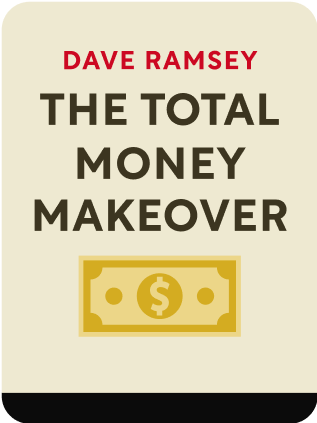

This article is an excerpt from the Shortform book guide to "The Total Money Makeover" by Dave Ramsey. Shortform has the world's best summaries and analyses of books you should be reading.
Like this article? Sign up for a free trial here .
What are the major myths about debt? How do myths about debt hurt your financial health?
Myths about debt are an obstacle identified in Total Money Makeover. Rethinking these myths will help you on your path to financial health.
Read on to understand the myths about debt and how they are obstacles.
Myths About Debt
The second obstacle to gaining control of your finances is the widespread belief that debt is useful and normal—that everyone has it. In addition to this belief, there are a variety of related myths about debt that encourage different types of borrowing.
You must reject these views of debt before you can get control of your finances. Society encourages us to take on debt starting as young adults and to carry debts throughout our lives. There are several reasons:
- Our culture promotes instant gratification. Although it’s human nature to want things right away, mature people delay short-term satisfaction for a bigger payoff later. But society encourages immaturity by urging you to get what you want now, before you can afford it, by borrowing.
- Financial institutions, stores, and other lenders promote borrowing to get what you want because they benefit when people owe them money.
- Debt has become so ingrained in our thinking that most people believe debt is normal and can’t imagine living without it. We don’t know how to get a car, buy a home, or go to college without debt. Most can’t imagine living without a credit card. (Americans have about $900 billion in credit card debt.)
So debt is widely viewed as the way to do things. We’ve bought into it to such an extent that we get defensive if we hear anything negative about debt. But the borrower is the slave to the lender. Your income is your primary means of building wealth, and when it’s tied up in debt payments, banks gain and you lose. If you invested your income, you could build wealth and security. How much discretionary money would you have each month without debt payments?
Here are some of the biggest myths about debt that you must give up:
Myth #1: Debt Is Useful
The biggest myth about debt is that it’s a tool or leverage you can use to build wealth—for instance, to get a car, home, or start a business that will be a foundation for building your wealth, that is, an investment in your future. It’s smart to use other people’s money, we’re told.
However, debt doesn’t usually make you more prosperous. It creates risk that, over time, builds and erases any initial advantage.
If you want to be wealthy, you should do what wealthy people do instead of believing myths about debt pushed by lenders. Three-quarters of the Forbes 400 wealthiest people in America told pollsters that the best way to build wealth is to stay out of debt. Millionaires live below their means and pay cash.
Three of the biggest lenders at the time this book was written—Sears, JCPenney, and Ford—were founded by people who actually opposed debt. For example, Henry Ford thought debt was a lazy way to get things; his view was so strongly held that his company didn’t offer financing until a decade after GM did. Today, credit is one of Ford’s (and any car company’s) biggest profit generators.
Debt Consolidation Solves Your Problems
When people’s debts become overwhelming, they may turn to services that will consolidate their debts.
Debt consolidation is appealing because it can lower interest on some of the debt, and you have a single smaller payment. But there are several problems:
- You still have the debt—you just rearranged it.
- While your payment may be lower, you’ll be paying over a longer period.
- While you feel as though you’ve addressed the problem, you’ve only treated the symptom. You have to change your habits of overspending and buying on credit. One debt consolidation firm estimated that after someone consolidates their credit card debt, it grows back more than 75% of the time because they haven’t changed their behavior.
Your Total Money Makeover requires changing your view of debt, and getting and staying out of debt.

———End of Preview———
Like what you just read? Read the rest of the world's best book summary and analysis of Dave Ramsey's "The Total Money Makeover" at Shortform .
Here's what you'll find in our full The Total Money Makeover summary :
- The 7 steps to achieving financial stability (you'll love #7)
- A fool-proof plan for becoming debt-free
- How myths about debt and money are crippling your financial health






